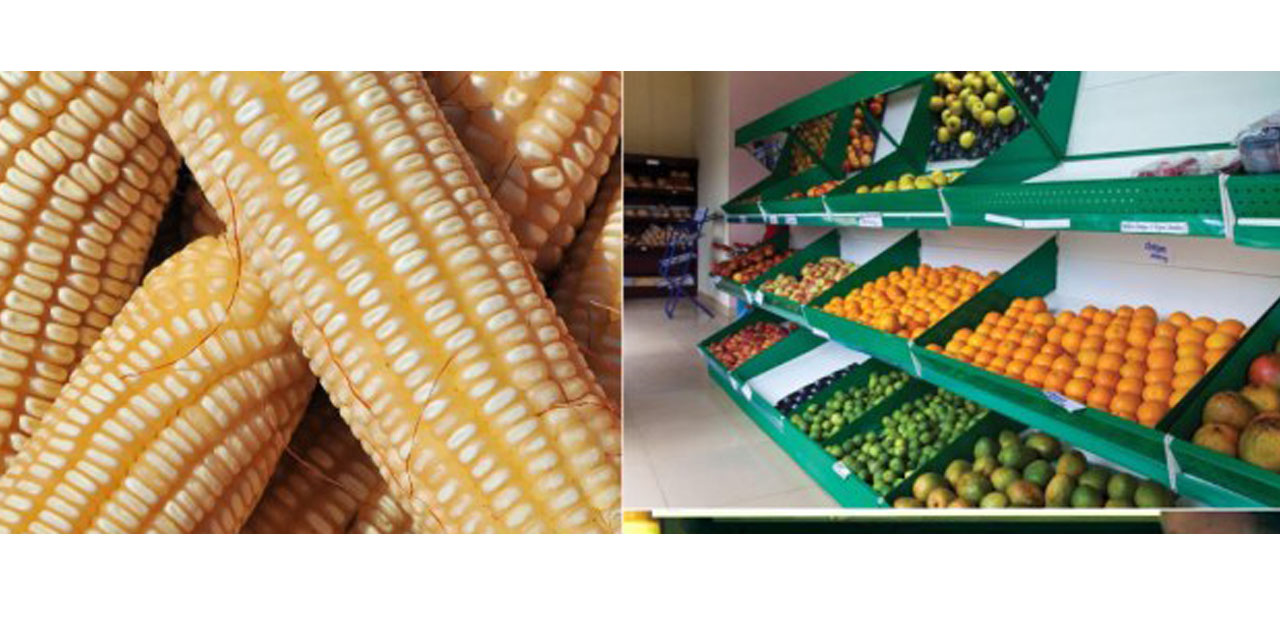Martin Endjala
Namibia continues to rely heavily on South Africa for food supply, with 97 percent of processed agricultural products being imported from the neighbouring country.
Imports of processed products average roughly 54 570 tons annually and have an estimated value of over N$1.5 billion.
The situation arises from a lack of access to raw materials.
According to the Namibia Agronomic Board’s (NAB) research report conducted on various projects for the financial year of 2022/23, juice, frozen vegetables, frozen potato chips, jams, olive oil, spices, and other forms of dried vegetables are the some of most commonly important products.
The report, issued last Friday indicates that this number is very high compared to what Namibia exports.
“Based on a horticulture agro-processing study, the results indicated that over 9 000 tons of produce worth N$162 million are produced by Namibia annually. These products are tomato sauce, chilled vegetables (cut, sliced, and diced), and fruit juice,”the report said.
Another study carried out on the fruit production baseline further indicates that Namibia is a net importer of fresh fruits. The country imports about 95 percent of its fruit per annum which translates into roughly N$200 million to meet the domestic demand gap.
Some of the top fresh fruits currently produced locally include grapes, oranges, dates, mangoes and lemons.
According to the report, this is due to numerous challenges facing the fruit industry such as the unavailability of quality and improved fruit tree seedlings, high input cost, pest outbreaks and lack of tailor-made and affordable finance.
With regard to horticulture performance, the report indicated that Market Share Promotion (MSP) Scheme Performance shows that during the reporting period, the MSP threshold remained unchanged at 47percent, while the highest Actual Primary MSP obtained was 53 percent (N$32 million) in July 2022, and the lowest was 34 percent (N$21 million) in April 2022.
This brings the average annual actual primary Market Share Promotion obtained for the 2022/23 Financial Year to 43 percent valued at N$339 million, implying that 57 percent worth N$445 million was imported, compared to the 42 percent recorded during the 2021/2022 Financial year. This indicates an MSP increase of one percent.
The increase in annual Actual Primary Market Share Promotion during the 2022/23 financial year, is attributed to an increase in the production of some major crops, mainly potatoes, onions, tomatoes and sweet pepper.
Furthermore, during the 2022/23 Financial Year, a total of 85,828 tons valued at N$1.6 billion of fresh fruit and vegetables were exported mainly overseas and to South Africa, compared to 59 036 tons recorded during the 2021/22 Financial year.
In 2022/2023, Primary Market Share Promotion stood at 43 percent. There was a significant increase in exports of locally produced horticultural products by 45 percent worth 26 793 tons. Similarly, an increase of 54 percent valued at N$573 million in terms of monetary value was also recorded.
Meanwhile, Namibia Agronomic Board Public Relations Officer, Auguste Fabian, said that white maize grain production of 97 881 tons and wheat production of 24 696 tons was the highest ever recorded in Namibia, citing it as a good indicator that Namibian producers have heeded the call to producers to scale up production.
She noted that there is still more to be done by industry players to achieve local grain self-sufficiency, as it only stood at 41 percent during the reporting period, and 59 percent of the grains were imported to satisfy the demand gap.
The overall compliance rate for controlled agronomic and horticultural products for the 2022/23 financial year Fabian said, is recorded at 94 percent in terms of the industry’s adherence to regulatory measures being implemented for the control of imports, exports, and transits, as well as that of food safety and quality requirements.
Fabian has since encouraged industry players to acquaint themselves with the requirements contained in the Namibian Standards and regulations as they define the administrative and technical requirements.
The Namibia Agronomic Board has developed and finalized four regulations pertaining to the exportation, importation, local production and trading, and transit of controlled products, which will provide a framework to enforce and monitor compliance within the crop industry, in accordance with Sections 13 and 24 of the Agronomic Industry Act No. 20 of 1992.
The next step is the approval of the regulations by the Ministry of Agriculture, Water and Land Reform to pave way for publication in the Government Gazette by the Ministry of Justice and enforcement thereof.




